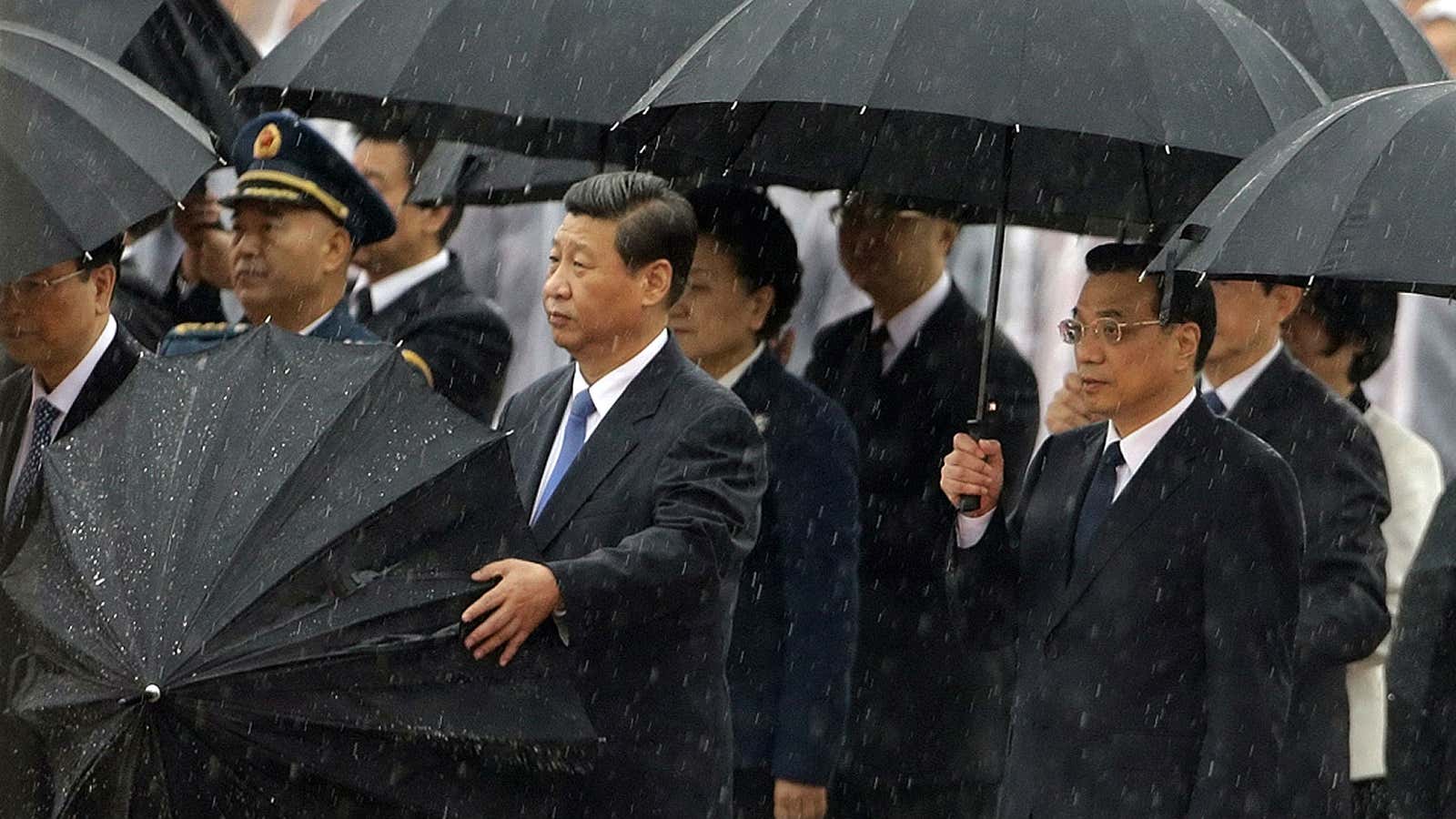China’s top leaders will gather on Nov. 9 in Beijing for a four-day planning meeting expected to lay out a blueprint for the country’s economy for the next decade.
The ”Third Plenum of the 18th Party Congress,” as it’s called, has provided an occasion for analysts, economists, academics and journalists to publish big-picture reports on the overall state of the country. In recent days, they’ve examined the difficult balance between political control and increased economic openness, the dramatic history of that plenum’s past, and the impact could it have on stock markets.
Opinion is sharply divided on whether the meeting will provide meaningful ”unprecedented” reform that will change China’s economic direction or disappoint because of too-high expectations and special interest groups reluctant for reform. State media Xinhua has vaguely outlined areas of focus for the plenum: “development of the socialist market economy, democracy, cultural development, social harmony and environmental protection.” Here are a few areas that most everyone is in agreement on.
Topics that will be addressed
What to do with all the old people. As the Financial Times points out (paywall), by 2030 the number of Chinese over the age of 65 will triple to 300 million, putting a strain on many working adults—many of whom are only children who bear the burden of caring for their parents alone—as well as the state. Less than 2% of China’s elderly are in institutional care. But that will surely increase as more people need care. The challenge of addressing the country’s tricky demographics is sure to be part of any economic reforms agreed upon at the meeting.
And the out-of-work youth.Earlier this month, premier Li Keqiang said the country needs GDP growth of 7.2% to create 10 million new jobs a year, what’s required to absorb the growing population. But even so, an increasing number of China’s youth don’t want the jobs that are available. “Young people now with college degrees just don’t want to work in factories,” factory manager Jin Tai told The New York Times.
Getting people to spend. Policymakers’ overarching goal right now is to transform China’s economic growth model into one more dependent on domestic consumption. One way to encourage more spending and less saving is improving welfare benefits, since people feel less pressure to put aside money for medical emergencies or similar problems. A think tank that advises the government promised recently that the meeting will “establish a ‘basic social security package’ for all citizens to equalize social security nationwide and improve regional mobility of social insurance accounts.”
Stopping officials from embarrassing the Chinese Communist Party. After a year of scandals involving top as well as lower-level cadres, leaders appear worried about maintaining the party’s credibility—hence the administration’s current corruption crackdown. Some experts say the government may release a five-year plan to combat corruption.
Topics that might be addressed
How to move more people to cities. Reforming China’s household registration system, the hukou, could speed up the country’s rate of urbanization, which officials have deemed a key driver to increasing consumer spending as well as productivity. Reforming the system would give migrants more rights in cities, like access to health care or school for their families.
Deflating the real estate bubble. Insuring bank deposits and liberalizing interest rates would give savers higher returns and encourage them to put their money into banks rather than in investments like China’s real estate market.
Helping small businesses. Officials could discuss ways to get state-owned banks to lend more to the small enterprises, who are likely to be more innovative and productive than the large state-owned enterprises that dominate sectors like energy, telecommunications or banking. Reducing the hold SOEs have over the government and the economy will be one of—if not the most difficult of—any reforms.
Topics that won’t be addressed
Tax reform. The current tax system, set in 1994, incentives local governments to use extreme measures to sell land and take on huge amounts of hard-to-track debt. Despite increasing calls for change, serious reform seems unlikely, at least during this meeting. “There’s no way we can dismantle the existing system,” Wen Zongyu, a researcher at the Ministry of Finance, told the Wall Street Journal (paywall). “We will have to proceed using this as the foundation.”
Political reform. The government may have talked up the “comprehensive reform” this meeting will herald, but most experts say that the tone Xi Jinping’s administration has so far set suggests political reform is off the agenda. Xi, who is seen as politically conservative but possibly liberal on the economic front, has tightened the reins over social media and detained dissidents calling for more government transparency.
Chinese citizens don’t want political reform anyway, at least that’s what the Global Times, a state-run newspaper, reported today, citing a recent poll of over 1,000 people. Just one-third of these identified “the political system” as the area they hoped would be addressed. Those that did were “people mainly from the elite class,” while the working class public was worried about issues related to “livelihood.”




